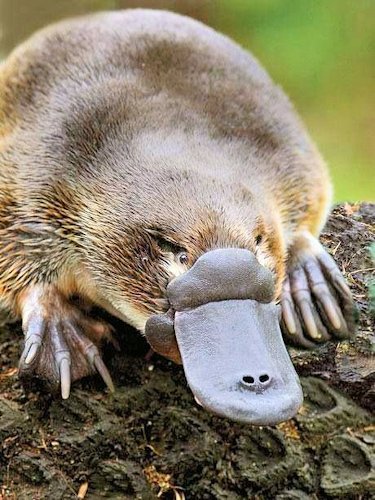
|
Selection of 60 of God's Wonders - Scene 45
Duck-Billed Platypus
The platypus (Ornithorhynchus anatinus) also known as the duck-billed platypus
is a semiaquatic egg-laying mammal endemic to eastern Australia, including
Tasmania. Together with the four species of echidna, it is one of the five
extant species of monotremes, the only mammals that lay eggs instead of giving
birth.
The unusual appearance of this egg-laying, duck-billed, beaver-tailed,
otter-footed mammal baffled European naturalists when they first encountered
it, with some considering it an elaborate hoax. It is one of the few venomous
mammals, the male platypus having a spur on the hind foot that delivers a venom
capable of causing severe pain to humans. The unique features of the platypus
make it an important subject in the study of evolutionary biology and a
recognizable and iconic symbol of Australia; it has appeared as a mascot at
national events and is featured on the reverse of its 20-cent coin. The
platypus is the animal emblem of the state of New South Wales.
The platypus is a carnivore: it feeds on annelid worms, insect larvae,
freshwater shrimps, and freshwater yabby that it digs out of the riverbed with
its snout or catches while swimming. It uses cheek-pouches to carry prey to the
surface, where it is eaten. The platypus needs to eat about 20% of its own
weight each day, which requires it to spend an average of 12 hours daily
looking for food.
|
